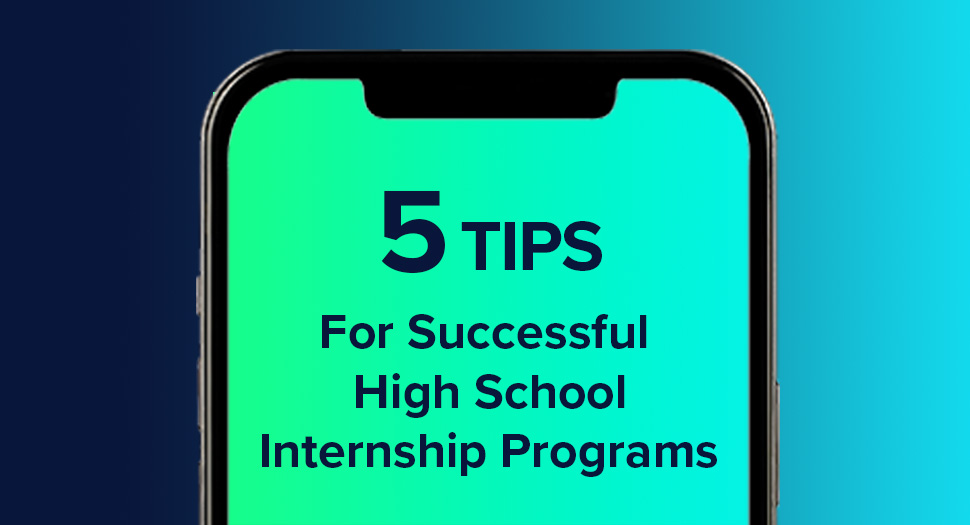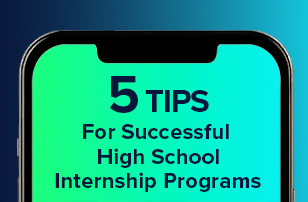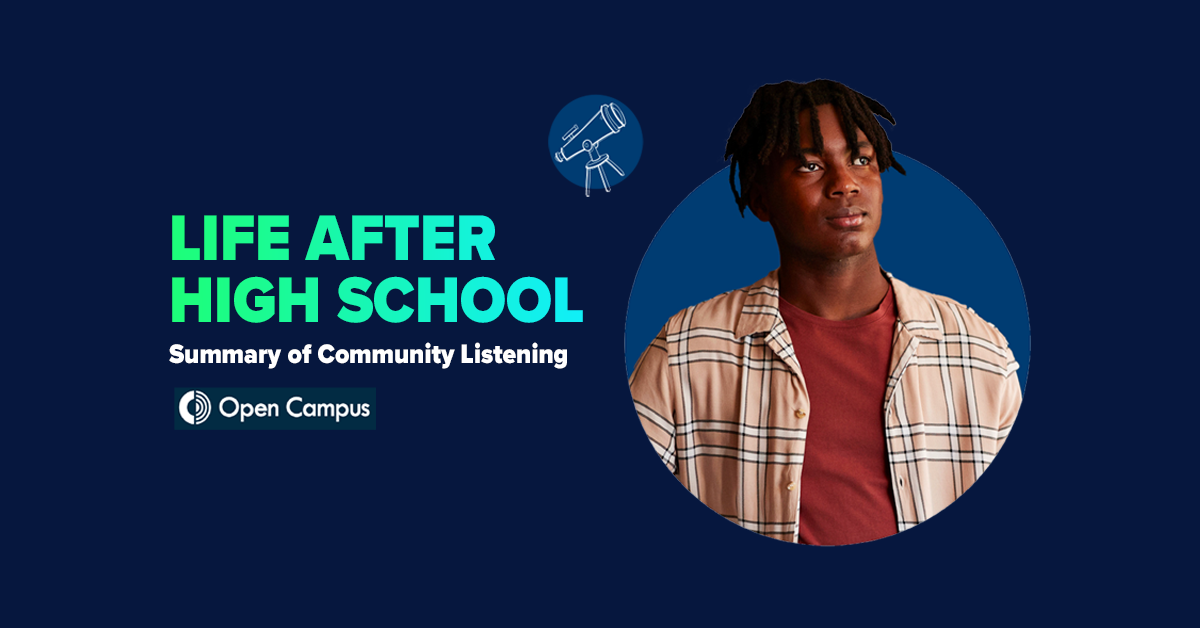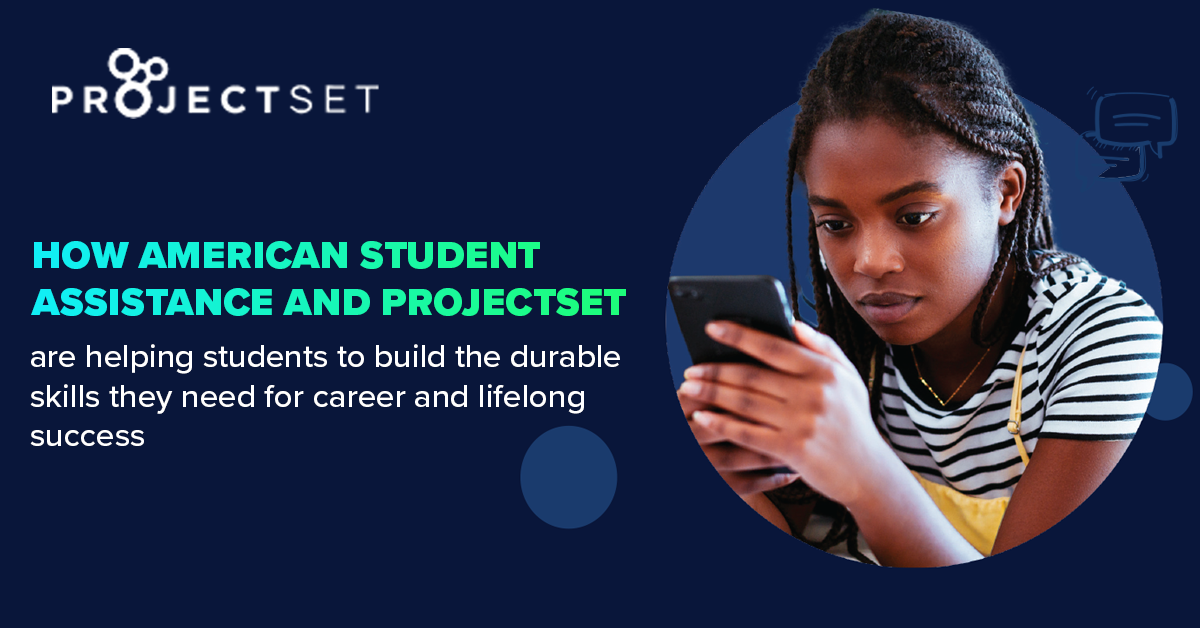When COVID-19 struck last year, employers, educators and community-based organizations had to scramble to pivot their summertime work-based learning programs to a virtual experience. The lessons learned from last year can be used to expand and improve offerings as we head into summer 2021 and beyond.
At Skills for Rhode Island’s Future (SkillsRI), the statewide workforce intermediary that runs the PrepareRI high school internship program through support from the Governor’s Workforce Board, we had to make quick decisions and decided to pivot the traditional internship to a reimagined, virtual model that we called the “COVID-19 Innovation Challenge.” Employers identified challenges they were facing in their day-to-day work activities and industries as a result of the pandemic, and our cohort of nearly 500 students were then tasked with developing solutions. The challenge winners received scholarships for their creative thinking and ingenuity.
With a student participation rate 44 percent higher than the previous summer, diverse representation, and positive participant feedback, the COVID Innovation Challenge was a meaningful way for students to participate in work-based learning from a virtual setting. Nearly 90 percent of students reported gaining real-world competencies, and more than half of employers said the program was valuable in preparing their business or industry’s future pipeline of workers.
But we also took away many lessons about how to be successful in creating in-person and virtual work-based learning opportunities. Employers interested in providing high school internships for students should follow these tips:
1. Build in the requisite support systems for students. Whether in-person or online, it is critical to consider the additional resources students need to perform their roles with success. At least 50 percent of our participating students are opportunity youth coming from lower-income households and under-resourced schools. Many lack access to reliable broadband internet or devices.
To help mitigate this issue and keep kids engaged, we offer a technology lending library to provide interns with the proper equipment—including laptops and internet hotspots– they need to successfully complete the program. We have also established career enhancement services to prepare them for what the world of work will look like. Classes in Microsoft Office and Digital Literacy are being provided in both English and Spanish to make sure students have the knowledge of the programs they will use to do their work. Finally, we’re talking to dual-language students as well as students with disabilities to understand their needs, challenges and interests and ensure they have the resources and support to make the most out of the program.
2. Provide support to program coaches and mentors. While a weeklong training program or workshops can be beneficial, it is important to consider what effective mentoring and coaching looks like in a virtual setting, too. Many mentors are great in person, but they need guidance on how to authentically engage with students through a remote work environment. Providing tips and ongoing support will ensure they feel confident supporting students.
We have formed a partnership with MentorRI to provide technical support, office hours and professional development to our coaches and mentors on how to be effective in their roles and how to best navigate various situations in the remote work environment.
3. Use technology and remote work culture to your advantage. Students are already gravitating toward greater use of technology, and they are hungry for these work-based experiences. We heard loud and clear from students that they wanted to be held accountable to the same expectations as adult workers who had shifted to remote work. Virtual internships and work-based learning opportunities can also break down important barriers, like transportation, for many students who want to access these programs.
4. Implement year-round opportunities for students. Many employers think students can only participate in an internship program or work-based learning opportunity for part of the year, but collaborating with educators can prove successful to planning programs that work for students whether they are actively in school or not. Year-round programming is an especially critical element of learning for opportunity youth. If we can build year-round work-based learning opportunities, we can better connect the dots between classroom learning and career learning and help students move toward economic mobility while still learning in their areas of interest.
With funding from American Student Assistance, SkillsRI will pilot virtual work-based learning during the next academic year at three high schools. These opportunities will take place during the school day and/or through an after-school format.
5. Foster connections between educators and the business community. As a workforce intermediary, we find that employers are by-and-large eager to get involved in internships programs but do not know how. That is why SkillsRI recently launched the Work-based Learning Navigator, an online platform to better connect educators to year-round, work-based learning resources. The Navigator serves as a matchmaker where educators can post opportunities their students are looking for and employers can post the experiences they can provide. While some states lack these tools, many do have similar resources to help students navigate these opportunities.
These lessons learned from a summer of virtual learning can guide the creation of future internship and work-based learning opportunities and help expand access to all students. Consider how these can be applied to your program to promote high-quality work-based learning to high schoolers in your area.
Nina Pande is the executive director of Skills for Rhode Island’s Future, a nonprofit statewide, demand-driven workforce intermediary working to close the workforce skills gap in Rhode Island. Julie Lammers is the senior vice president of government relations and advocacy at American Student Assistance, a Boston-based national nonprofit that helps students know themselves, know their options and make informed choices about education and career.




